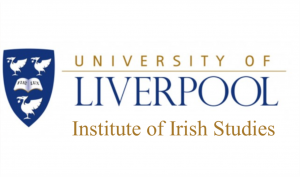Changed and Progressive Loyalism Must Be Embraced.
Positive vision of loyalism can counter threat of a return to violence post-Brexit
The Ulster Orchestra, Diwali (Hindu festival of lights) and an inter-community market with “themuns” from the Falls is coming soon to the Greater Shankill Winter Festival. The inclusiveness of the festival which runs through November probably challenges your sense that loyalists are just drum bangers who deafen dissent.
So will the loyalist Shankill Defenders Band who play music with Muslims, Rastafarians and other newcomers; providing a welcome to those from “beyond the fold” who are now part of their community. In the process they unfold the lazy tropes that only see loyalism as unpalatable, accepting the loyalist negative and plunging the positive into obscurity.
Once in a Mallorcan bar I met a Shamrock Rovers fan. He asked did I support a team in the North. “Linfield,” I replied. He dropped his beer, shuddered and pronounced “loyalist death squads”. He, until then, knew nothing of the club’s anti-sectarian work and that a GAA team trained at Windsor Park. His view was symptomatic, not only of what he had been told, but also of unionism’s failure to publicly assert its positive forms.
Forward-thinking loyalists have to contend not only with such limited external critiques but must also swim against the tide of internal challenge. They are viewed as “peace processors” and dupes of the liberal elite by loyalist activists such as Jamie Bryson.
Peace processors are seen as being detached from “true” loyalists and their belief, like Chicken Liken, that parity of esteem will cause the sky to fall. The regressively minded are infuriated by loyalists who are involved in anti-sectarian work and deem them as shamelessly corrupted.
For these angered loyalists, the increasingly hapless Prime Minister Boris Johnson has thrown them under the bus. They are furious at a cumbersome deal that “isolated” Northern Ireland from Great Britain and placed “Ulster” on the slippery slope to Irish unification.
They do not explain how and why the deal would occasion “a nation once again”. Also unexplained are the near-half of unionists who voted Remain. Anger at being placed outside Great Britain reflects a peculiar understanding of the nation. The UK is a multinational state which is why each part has different laws and why marriage equality and abortion was legislated for at Westminster. Unionist anger at such legislation obscured the fact that northern Protestants are a socially liberal people. The Protestant majority supported marriage equality and were more supportive than Catholics of abortion.
Northern Protestants, like their counterparts, are not rooted in Bible-infused ideologies. The aggressive rejectionist voices are echoes of positions long abandoned by most. The reason why so few know of this anti-prejudice reality is because we only hear from the uncompromising who fulfil the wider drivel that Northern Ireland is a completely dysfunctional place.
Political immaturity is not unique to them. You probably under-appreciate positive change up North and constructive loyalist, republican and other leadership in particular.
Bryson rightly and also wrongly condemned Johnson’s deal. His anger should be directed at the undermining of worker and trade union rights. That, not the desire to keep the Border open, is the perpetual form of betrayal experienced by the working classes. Demand for Irish unification will actually be slowed by an open border.
Angry loyalists, in rejecting all-island economic harmonisation, misunderstand that trade synchronisation also protects the union. Perceptive unionists get that and the fact that securing Northern Ireland is about mutual respect being delivered to the citizens who know football as soccer and spell crack as craic.
They are also understanding that those with an Irish national affinity are less inclined toward constitutional change when they sense semi-unification. Those nationalists cleverly access the National Health Service, free grammar schools, low house prices and jobs in the British public sector while imagining the Border is not there.
Loyalist anger lit up the airwaves in the wake of Johnson’s deal. A bit like Diwali without the inclusivity. It was declared that they were going back to violence. The same utterances accompanied the Flag Protest of 2013 that led to some 55,000 incidents of protest and violence but which was a shadow of the violence stimulated by the Anglo-Irish Agreement.
Brexit does not have that capacity to stir discontent. Civil disobedience could emerge but what might that entail? Most loyalist violence is now linked to criminality. Johnny Adair and Billy Wright, who rejected peace, have gone. Dissident republican violence, which kills security force members, does not lead to tit-for-tat loyalist reaction. We should be more appreciative of those who directed loyalists into progressive activity: it is not war weariness but a rejection of violence.
If civil disobedience emerges we will work our way through it but those who are supportive of constructive change must understand that loyalism contains a positive variant. The peace process will not flourish if you drop beer bottles when your perceptions are challenged. It will stall if you do not support the efforts of those who are your constitutional opponents.
To the peace processors, of whatever hue, and as they say in Hindi on the Shankill Road, ekata shakti hai (unity is strength). Peace-building is the unanimity of parity of esteem in action which raises the question: what are you doing to process the peace?
Prof Peter Shirlow is the director of the Institute of Irish Studies at the University of Liverpool. He is author of the book The End of Ulster Loyalism?


